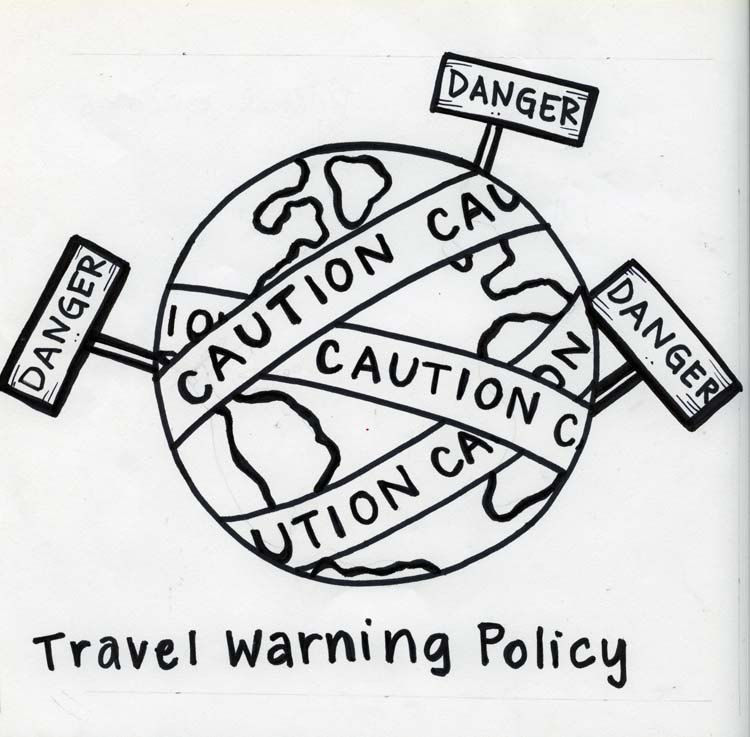Starting this summer, students who are looking to study abroad will have to contend with a new Travel Warning Policy if they hope to take part in a program connected with the College of William and Mary. The policy comes into play if a student wants to study at any school with which the College has a partnership, receive any funding, attend any trips with faculty or transfer any credit. The restrictions are effective for any country for which the U.S. Department of State has issued a travel warning. Students who want to travel to one of these countries while still affiliated with the College will have to receive prior approval from a special committee.
The actual power the Provost is taking isn’t new — they’ve had this kind of control for a while now — but it does represent a symbolic extension of the College’s claim to regulate your rights as a student. We’re all adults, and there are certain international travel decisions we can make by ourselves. We didn’t need a State Department directive to know that the situation in Syria is a little turbulent right now, and hopefully every student at the College understands that going to North Korea is a bit risky.
This is the issue at the core of a review process: The same trigger is being applied to countries with wildly different levels of risk, and the Committee’s guidelines don’t seem to be set up in your favor. We would hope that the Travel Warning Review Committee is fully capable of handling these sorts of issues. However, it isn’t transparent enough right now to inspire confidence that the trips you might plan aren’t going to run into problems. The “academic and personal preparation” of students will be considered; I’m sure the notion that one needs to be “prepared” before going abroad will come as news to everyone who thought part of the point of traveling was to introduce themselves to things they didn’t know existed. Another factor is the “academic or service learning necessity” of the trip — I’m racking my brain trying to think of a) what on earth a “necessary” study abroad trip would be, and b) when exactly the administration forgot that college is a time when you try things simply because you think they might be fun.
Of course, the elephant in the room of this process is liability — the College isn’t going to risk being sued for everything it’s got while you’re in a potentially dangerous country. First, this shouldn’t affect transfer credit in any way — the College can accept credit from any institution in the world, including those with which it has no legal relationship. Second, I’m sure most students who really want to take a particular trip aren’t going to have a problem signing half a dozen waivers. That leaves “federal regulations” as the last obstacle. Jumping through those hoops is best left to the College’s lawyers, but anything that seriously inhibits the ability of students to travel should be made more explicit, and anything that doesn’t should be worked with in the least restrictive manner possible.
Above all, the College might simply insist this is all a matter of wanting students to be safe. That’s nice, but outside of the legal issues, it’s a conversation best left to a student’s parents. Students inevitably are going to want to take trips to countries that the administration and the State Department may think are dangerous. Weighing this risk versus a possible once-in-a-lifetime experience is best left to the student. The College ought to give us the latitude to do so.

